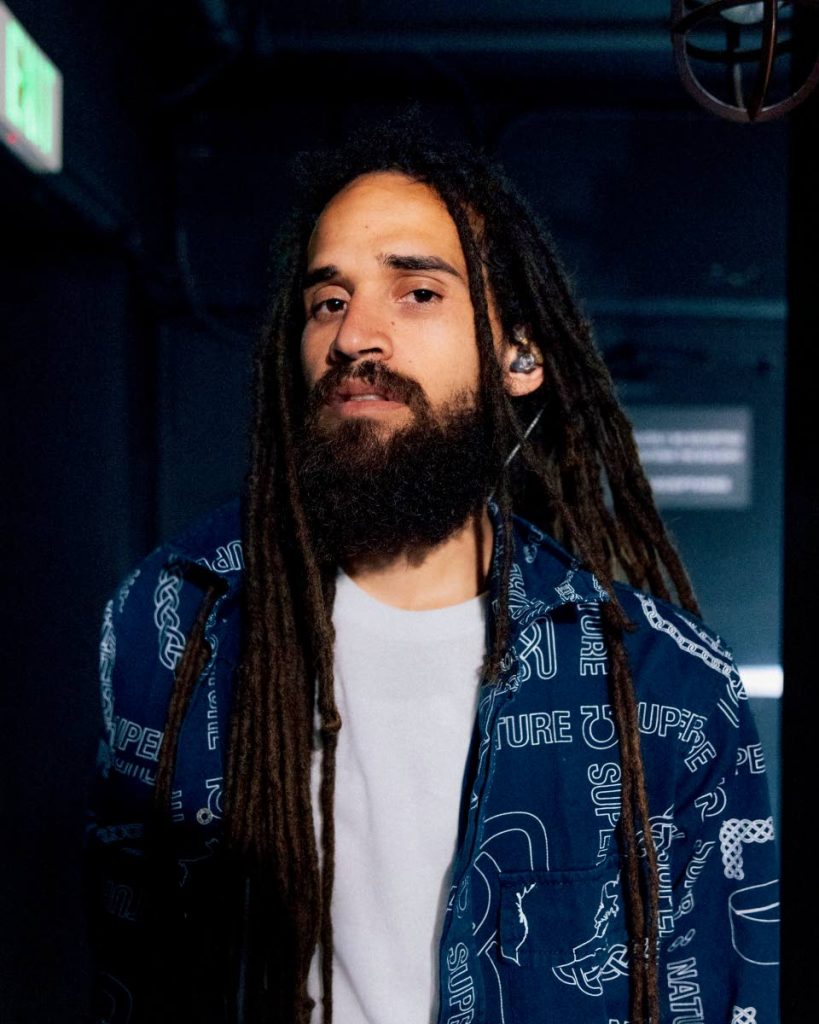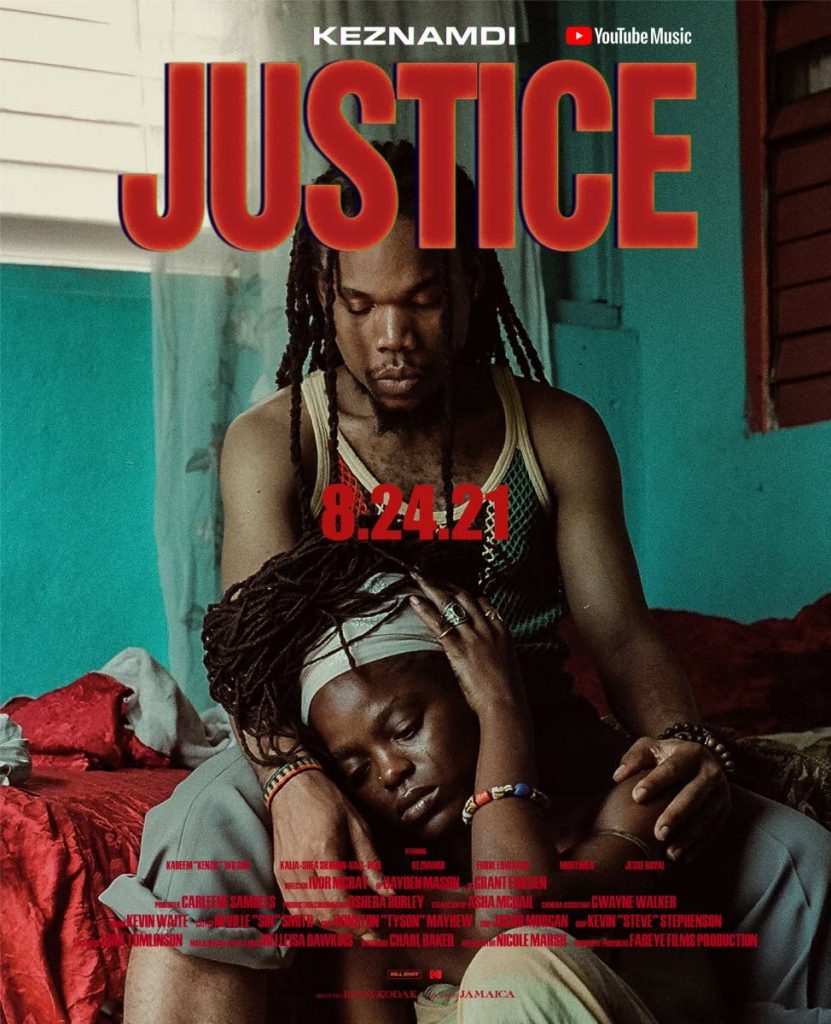Jamaica’s Keznamdi calls for Justice for Rastafarians in new music video

ALTHOUGH some level of love and appreciation for Rastafari culture can be seen at the surface of the entertainment industry, the movement continues to face discrimination and disrespect by the wider society very often. From modern-day instances of locs not being allowed at schools and workplaces, to being stopped and searched by the police, solely because of their hairstyles, their battle against the system is far from over. But they continue to fight – they continue to seek justice.
Jamaican reggae artiste Keznamdi is renewing this call in his most recent music video for his track Justice from his 2020 album Bloodline.
It was directed by Ivor Mccray and highlighted what is infamously known as Bad Friday or the Coral Gardens incident/massacre in Jamaica in 1963 – one year after the country gained independence.
In the years leading up to then, tensions were high between the government and Rastafarians as the latter continued to fight for their rights. Arrests and beatings were not uncommon for members of the movement at that time.
Within Coral Gardens, which is located in the parish of St James, Rastafarians used some of the land for farming. But with the government hoping to turn this place into a tourist attraction, they often chased away the rastas from the land – and this was not always done without force.
For instance, Rastafarian Rudolph Franklin was shot approximately five times by police after he was reportedly found farming illegally. The landowner claimed he was squatting and asked police to intervene. He was left for dead but was later found and taken to the hospital.
After he was released from hospital, he was charged with possession of cannabis – which is a religious sacrament to rastas – and jailed for six months.
Between April 11 and April 13, 1963 would then be one of the most unforgettable incidents in Jamaican history as it relates to Rastafari.
Reports claim a group of rastas who had weapons – and were led by Franklin – set a gas station on fire. The station was owned by the man with whom he had the land dispute in 1962.
Chaos ensued and Franklin, other rastas, police and civilians died.
On April 12 – which was Good Friday – then Jamaican prime minister Alexander Bustamante gave a chilling order: “Bring in all rastas – dead or alive.”
Police stormed Rastafari camps and homes, beating, arresting and even killing members of the movement. Many fled but around 150 were arrested and their locs were cut off.
Bustamante remains one of seven Jamaican national heroes, which is strongly rejected by rastas.
For instance, in Jamaican reggae artiste Protoje’s track Flames, he sings, “…A man like Bustamante, how you fi get me trust da man deh? National hero who? You tan deh (stay there and feel so).”
That track also features Jamaican artiste Chronixx, who proclaims: "We nah stop talk 'bout Coral Gardens till we dead."
In 2017, Jamaican Prime Minister Andrew Holness apologised to the Rastafarian community, calling the incident a “grave injustice.” He assured the group no such thing would happen again.
He also announced the government would set up a trust fund of J$10 million for survivors.

In his five-minute music video, Keznamdi explains that modern-day rastas still face a world of challenges.
In a press release, his team said the song is “not only to re-educate Jamaicans of the re-awakening of the social injustices faced by Rastafari but is accompanied by a call to action.
“This call to action is in the form of the Rasta Rights Matter: Support The Ten Demandments petition which Keznamdi via Skyline Levels, is encouraging all to sign. “
They said the petition is a “global protest,” demanding that the Jamaican government address the violation of human rights against Rastafarians.
The video begins with four Rastafari brethren reasoning in the hills. It then gives an account of Bad Friday, with scenes switching from nightfall to daytime.
Then, it shows the hand of someone firing a gun. The bullet strikes a woman’s right shoulder.
A broadcaster can be heard reporting the Coral Gardens incident.
The song features vocals by Errol Edwards who sings the hook: “I’m looking for justice, di people dem a bawl (people are crying).”
It shows rastas at their camps, some attending to their crops, while police scan the area.
One woman tries to flee after she spots them, but then her cries are heard and blood is seen flowing on some of her crops.
Hearing her screams, a family member stops in his tracks and runs towards the sound of her voice. But he was not fast enough.
Her dead body is then seen surrounded by blood in a nearby river.
Staring in shock and despair, he too is then caught off guard by police and arrested with no time to grieve.
The scene which follows shows him and other rastas with a sorrowful facial expression, behind prison bars while prison guards pace down the aisle. Keznamdi himself is also in this scene as well as fellow Jamaican reggae stars Mortimer and Jesse Royal.
Keznamdi then writes: “The more things change, the more they stay the same.”
The most recent, publicised incident of discrimination against rastas in Jamaica was when 19-year-old Nzinga King said a policewoman cut off her locs after arresting her for being in a vehicle in which the driver was not wearing a mask.
This went viral on social media and Keznamdi made an Instagram post saying, “Don’t usually post things like this but mi nah tell nuh lie, dis one hurt me. Jamaica it’s about time we see the beauty of Rastafari.”
He tagged Holness in the post saying, “We need some justice.”
In a later post, he said, “Jamaica, the whole world is watching. Do the right thing. This is a great chance to begin the healing process of all the atrocities done to an indigenous people.”

And after the music video’s release on August 24, he told Holness he hopes it “moves him” to promote and protect Rastafari culture.
Even in TT, there have been recent calls for justice by Rastafarian groups – especially since the decriminalisation of marijuana. The groups believe they are not included enough in discussions surrounding this, especially relating to developing a cannabis industry.
Keznamdi’s petition is seeking 15,000 signatures and has got over 5,000 so far.
The video can be watched on YouTube.


Comments
"Jamaica’s Keznamdi calls for Justice for Rastafarians in new music video"